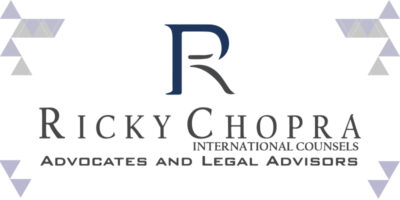Laws on defamation act as a reasonable restriction on freedom of speech and expression. The laws on defamation checks that no one harms the reputation or demean others in the eyes of the public. Justice Cave gave an appropriate definition of defamation as a “false statement about a man to his discredit.” For example, X, and Y are contesting for the post of president in their college. During his campaign X makes a statement that “Y is a bully and he has seen Y bullying the freshers”. The following statement is untrue and it has harmed the reputation of Y as people now have a negative opinion about him. This will hamper Y’s chances of winning the election and this statement will qualify as a defaming statement.
Index
- Meaning of Defamation
- Libel and Slander
- Defamation under Civil Laws
- Defamation under Criminal Laws
- Explanation to Section 499: Defamation
- Exception to Section 499
- How to File a Suit for Defamation?
- Conclusion
MEANING OF DEFAMATION
In India, Defamation is both a civil and criminal law. While the civil form of defamation falss under the law of torts, the criminal form of defamation is defined under section 499 and is punishable under Section 500-502 of the Indian Penal Code.
Libel and Slander
There exists a distinction in between the English law of defamation and Indian law on defamation. The act of defamation is generally, divided into two forms-
Libel- This is a kind of defamation that exists in some permanent form like in writing, printed in some form or a picture.
Slander on the other hand, is a kind of defamation that is in unwritten form like words spoken, gestures, signs, hand representations.
Under the English law, both libel and slander are differentiated on the basis of civil and criminal defamation. Under the criminal law, only libel is an offence while slander is not. However, under the civil law both libel and slander are an offence. But, for slander to qualify as an offence, substantial proof is required.
Under the Indian legal system, both libel and slander are recognized as criminal offences and fall under Section 499 of the IPC. The civil remedy falls under the law of torts. Under the law of torts, libel is actionable per se (on the face of it) while slander is actionable. This means that, in case of slander valid proof needs to be provided for the claim of defamation to be acceptable.
Defamation under Civil Laws
Defamation falls under Tort law which is an uncodified law. It involves making untrue/false statement about another which has the potential of damaging the reputation. As per Dr. Winfield, “Defamation is the publication of a statement which tends to lower a person in the estimation of right-thinking members of the society, generally or, which tends to make them shun or avoid that person.”
Essentials under civil defamation-
- The words spoken or written must be defamatory.
- The words must make a reference to the plaintiff.
- The words must be published which means that the defamatory statement must be made before one or more persons other than the plaintiff.
- The defamation must be done without any valid justification.
Exceptions to the rule of defamation-
- Justification or Truth.
Truth as a defence is complete and absolute in case of a civil action. However, under the criminal law. In case of defence of truth, it is mandatory for the accused that the truth was published for public’s good. But in case the statement is proved to be wrong, one cannot justify it on the ground that the person who made this publication believed it to be true on some reasonable grounds.
- Fair Comment
This defence gives respite to the critics, authors, writers, editors, film reviewers, etc. Comment means opinionizing on some fact and not making any statement or fact. Fair here, means that malice should not be involved. Such comment should be in the interest of the public at large. It must not be based on untrue facts.
- Privilege
Under some circumstances, right to free speech holds a larger weight as compared to a person’s right to reputation. Such privileges are divided under two heads- Absolute and Qualifies privilege.
Absolute Privilege- In case where the person holds an absolute privilege, no action can be brought against a defamatory statement, even if it is false or maliciously made. This is an absolute defence and is sparingly available. This type of defence is recognized under Parliamentary Proceedings, Judicial Proceeding, etc.
Qualified Privilege: It is a qualified defence and not an absolute one. The essentials to be there to plead this defence includes-
- There must exist a special occasion for making the defamatory statement like while discharging some duty or in protection of an interest, etc.
- Malice must not be present with respect to the statement.
- If malice is present, then this defence is not available. However, for that plaintiff must prove the presence of actual malice.
Criminal Defamation
Section 499 of the Indian Penal Code talks about defamation. According to it “Whoever, by words either spoken or intended to be read, or by signs or by visible representations, makes or publishes any imputation concerning any person intending to harm, or knowing or having reason to believe that such imputation will harm, the reputation of such person, is said, except in the cases hereinafter expected, to defame that person”. This definition is quite broad and includes both verbal and written statements.
Illustrations
- Baldev says— “Zahir is an honest man; he never stole Bhargav’s watch”; intending to cause it to be believed that Zahir did steal Bhargav’s watch. This statement is defamatory unless it falls under one of the exceptions.
- Ashish is asked who stole Bahadur’s watch. Ashish points to Chander, intending to cause it to be believed that Chander stole Bahadur’s watch. This will qualify as defamation unless proved otherwise.
Elements of Defamation
- Making or publishing an imputation in the form of words (spoken or written) or by signs or by visible representations
- With an intent to harm or
- knowing that the statement is likely to harm, the reputation of the other person.
The Section 499 has been clarified and explained as follows-
- Explanation l: Defamation of the Dead
The act of defamation extends to the dead people as well. If any person, defames a dead person by any means including written, spoken, gestures or pictures, then this act will also be termed as defamation. Such statement is punishable, as the statement would harm the person if he would have been alive. It harms the reputation of the family or the closed ones of the deceased.
- Explanation 2: Defamation of a Company or a Collection of Persons
Since, a company is a juristic person, if an act causes harm to the reputation of the company or an association or a group of people, then such act will be called defamation. This means that the company can sue another person for defamation.
In the case of Priya Parameshwaran Pillai v. Union of India and Ors., Priya, a Greenpeace activist, in her blog made an allegation against Essar group that it was causing degradation of environment by its power project. This motivated the Essar group to file a defamation suit against her. Priya made an argument that private companies must not be given the right to file a defamation suit against an individual. The court set her contention aside on the grounds that companies have the power to sue for defamation.
- Explanation 3: Defamation by Innuendo
Innuendo is a statement having a hidden meaning. It is a notorious way to make negative statements, which appear positive on the face of it. Under Section 499, innuendo statements defaming a person are liable for criminal action.
Illustration
- Akshay told Arjun, pointing out to Chander, ‘Chander is a very even-handed person, I have not seen him making any discrimination against Gaurav.
This is an innuendo statement as Akshay was trying to convey that Chander has discriminated against Gaurav. This statement has the power to tarnish Chander’s image and hence will qualify as defamation.
- Explanation 4: Harming of Reputation
“No imputation is said to harm a person’s reputation, unless that imputation directly or indirectly, in the estimation of others, lowers the moral or intellectual character of that person, or lowers the character of that person in respect of his caste or of his calling, or lowers the credit of that person, or causes it to be believed that the body of that person is in a loathsome state, or in a state generally considered as disgraceful.” As per this statement, the reputation of a person is harmed if his moral or intellectual character is lowered or if he discredited or is considered to be disgraceful.
Exceptions to Defamation
Certain exceptions are provided under the act which would save a person from getting punished for defamation. These include-
-
- A statement, even though if it is defamatory but true made for a public good would fall under the exception and would not be liable for the punishment of defamation. So, for this exception the statement must be true and for the benefit of the public at large.
- Any opinion that is made in good faith regarding the manner or conduct of a public servant in discharging his duties, such statement would fall under fair criticism and punishment for defamation would not be levied.
- An opinion by a person expressing his/her views and opinion on the conduct of any other person who discharges some public function, other than public servants, such person forming the opinion will not be liable under this provision.
- Publishing true reports of the court proceedings or the results of such proceedings, will not qualify as defamation.
- If an opinion is made in good faith, regarding the merits or demerits of any civil or criminal case decided by the Courts, conduct of any party, witness or any agent to that case, then such opinion/ criticism would not qualify as defamation.
- Opinions made on the merits of any act or performance which the author has submitted for public views or about the works of the author is not defamation, if the opinion is made in good faith.
- Censures are formal statements made in severe disapproval. If any censure is passed by a person on the conduct of any other person, then such statement would qualify as defamation. The person applying the censure must have the lawful authority or any authority to censure provided vide a lawful contract, then such statement would not amount to defamation.
- Accusation made on a person by some lawful authority in good faith would not fall under the offence of defamation. Complaints made by parents, teachers and masters on children and servants fall under this exception.
- Imputations made in good faith on another person in order to protect the interests on oneself or some other is not defamation. E.g., writing character certificate of a person by employer/ teacher.
- Caution conveyed by one against other are not defamation if it is intended for the good of the person to whom the statement is made or for public good. E.g., If A makes a statement that, “Don’t give loan to C as he doesn’t pay installments on time.” Then this statement will not be defamatory as it is made to protect the interest of the person to whom made.
How to File a Suit for Defamation?
The complaint for defamation must be filed as soon as possible. The person, filing the complaint must get the necessary documents and the evidences verified by a lawyer. The evidences include evidences like statement of witnesses, publication of defamatory material among others. He can file an FIR with a police officer, if he wishes to get the alleged person to get a punishment. Along with this, he can file a civil suit for damages for defamation. A defamation case can also be settled outside the court through mediation or any other alternate dispute redressal mechanism. This is done if the person wishes for a speedier redressal of his case.
Conclusion
Defamation is a grave offence as it has the effect of harming the reputation of a person or tarnishing the image of a company which can have drastic effects on goodwill and finance of the company. Experts at RCIC, understand the nature of the offence of defamation or of a false claim of defamation is filed against a person. They guide the clients at each step, file the relevant evidences along with the pleadings. They maintain a relationship of trust with the client and help in getting the suitable remedy to the concerned issue.
Along with criminal matters, RCIC also specializes in other matters like IPR, Family Laws, General Corporate, White Collar Crimes, GDPR, etc. We have an experience of more than 3 decades in handling legal matters. Our offices are technologically equipped and have a pan India presence for serving our clients better. We are operating out of offices in New York, Chandigarh, Mumbai, Delhi, Pune, Faridabad, Noida and Gurgaon. We have handled various clients in the past including individuals, Government Companies, Fortune 500 companies, etc.


 +011 414 86 022 |
+011 414 86 022 | 


















